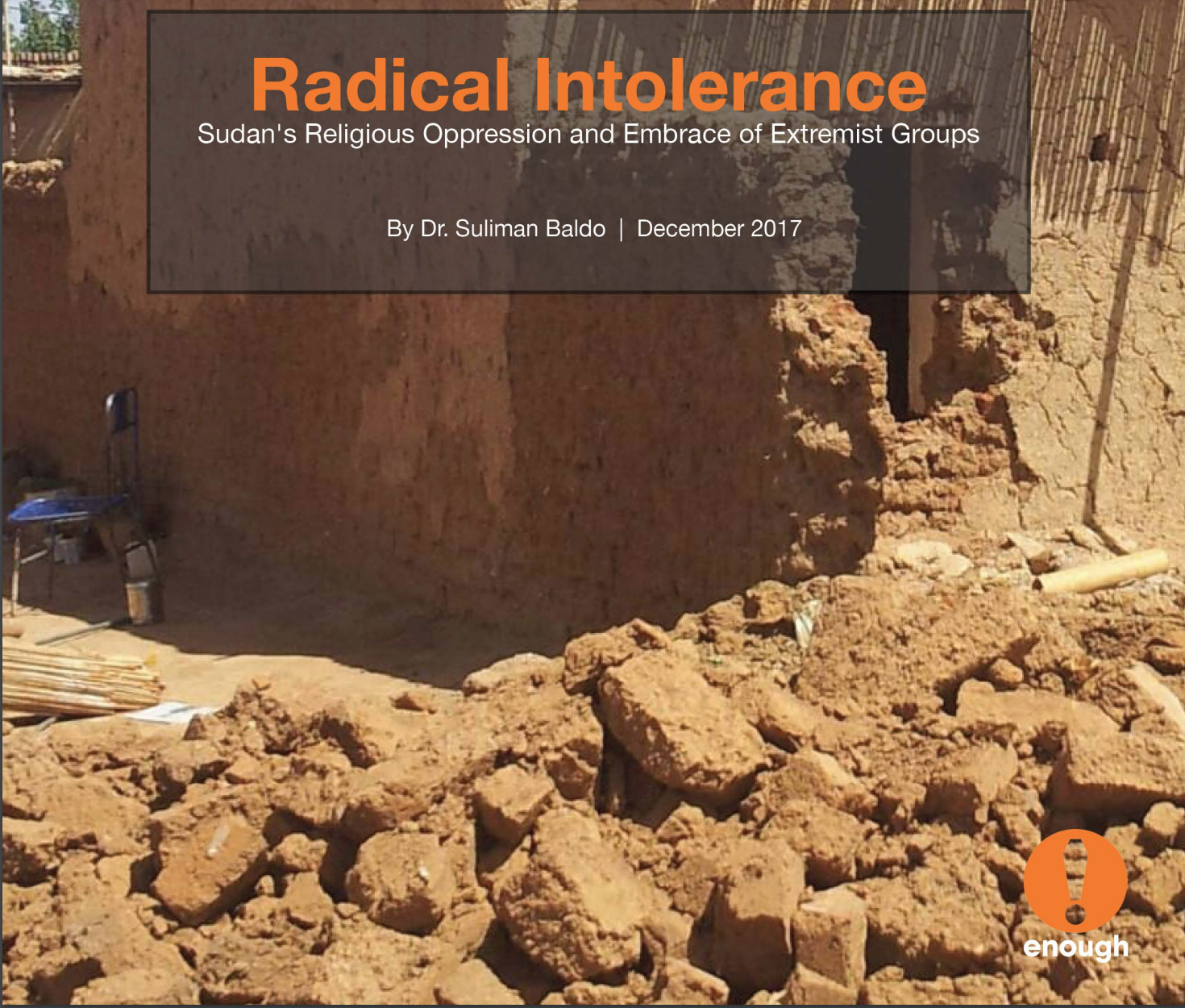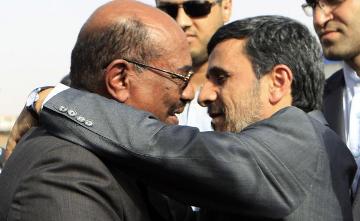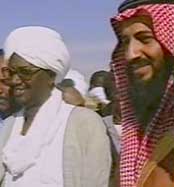“Radical Intolerance: Sudan’s Religious Oppression and Embrace of Extremist Groups,” Suliman Baldo, The Enough Project | December 2017
https://enoughproject.org/wp-content/uploads/2017/12/SudanReligiousFreedom_Enough_Dec2017_final.pdf
From the Executive Summary
The current Sudanese regime maintains documented, longstanding links with active extremist religious groups within Sudan, some of which call for jihad, advocate for groups like al-Qaida or the Islamic State group, threaten Westerners and Western interests, and/or are routinely involved in committing or inciting acts of religious persecution within Sudan. Some of these groups are associated with domestic attacks on religious groups (which include but are not limited to Christians, Muslim Sufi groups, and moderate Muslim scholars), and on rights defenders and intellectuals. Khartoum maintains these relationships with extremists to increase domestic and international political support for its leadership in Sudan and to demonstrate its support for jihad to international extremists. The Sudanese government also keeps these ties to claim an edge in intelligence gathering for Western intelligence services, by infiltrating extremist groups to acquire information, though these groups in turn use the space they are given by the Sudanese government to threaten Western interests. The regime in Khartoum also cultivates these ties with Salafist groups (those who adhere to an ultraconservative interpretation of Islam) and Salafist jihadi groups (ultraconservatives who support holy war against Muslims and non-Muslims they consider as threats to their interpretation of the religion) to protect the dominance of Sharia law in Sudan and intimidate and repress those of other faiths and beliefs (including Christians and many others) who seek greater rights and freedoms in Sudan.
Historically, the Sudanese regime had ties to international terrorist actors like al-Qaida and Hamas in the 1990s, which promoted jihad. Currently, it tolerates radical Islamist groups and clerics, allowing them to spread virulent ideologies including those of the Islamic State group and other international terrorist groups. Some of the extremist groups that the regime allows to operate freely in Sudan are involved in recruiting followers within Sudan for international terrorist groups such as al-Qaida, the Islamic State group, Boko Haram (active in several countries in West and Central Africa), and the Somali al-Shabab group. In considering these factors and the future of bilateral ties with Sudan, Sudan’s regional and international interlocutors and U.S. leaders should factor for the Sudanese regime’s extremist orientation and long history of mass killings, forced displacements, and large-scale violations of the fundamental rights and religious freedoms of the Sudanese people. [Emphases in bold have been added—ER]
A church being torn down in Omdurman (twin city of Khartoum); there have been many church demolitions and expropriation of church lands in recent years
Until very recently, Khartoum had extremely close ties with Iran and supported its various terrorist activities
The Khartoum regime provided safe haven, and operating room for Osama bin Laden during the formative years of al-Qaeda (1992 – 1996); here bin Laden appears with regime Islamist ideologue, Hassan al-Turabi


